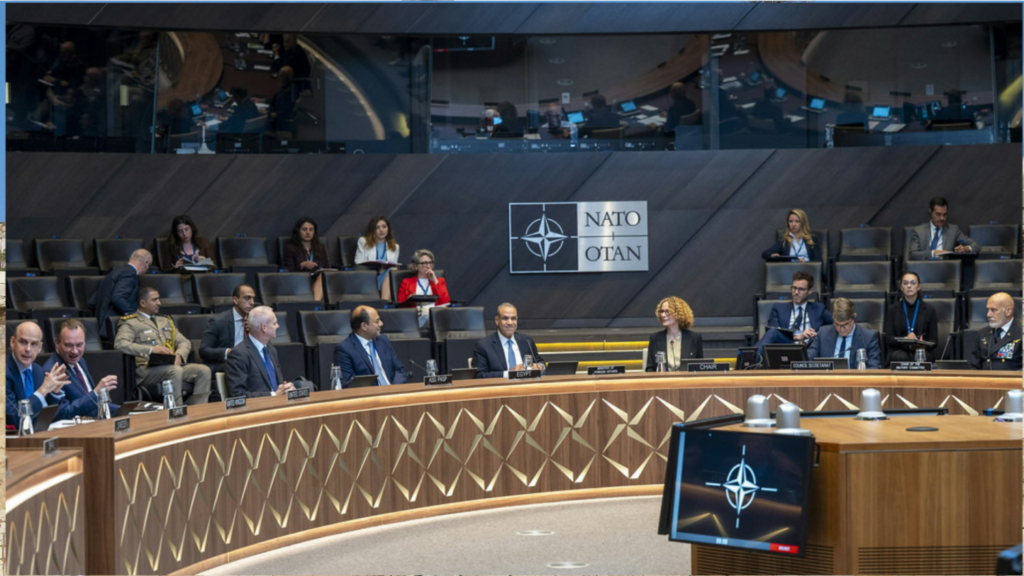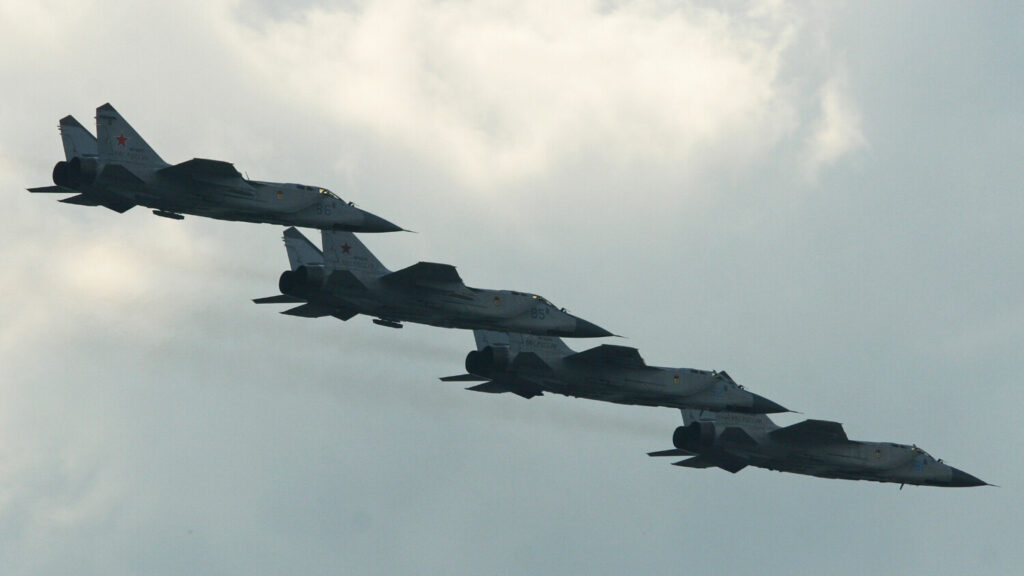Future of the Saudi-US Relations: Could Biden Push Saudi Arabia Towards Russia and China?
Since the outgoing President, Donald Trump, assumed office in January 2016 and conducted his first foreign trip to Saudi Arabia, the two countries have enjoyed an unprecedented relationship. The Kingdom became the centrepiece of President Trump’s Middle Eastern policy and Washington and Riyadh remained close allies throughout his term.
In 2020, Saudi Arabia played a major role in the signing of the Abraham Accords (normalisation deals between Israel and several Arab countries) and, although it did not join the agreements, it was praised for its involvement by the Secretary of State, Mike Pompeo. However, since President Trump lost the election to Joe Biden, the improved relations between Saudi Arabia and the United States might very well come under threat, given Mr Biden’s position towards the Iranian nuclear deal, human rights violations in Saudi Arabia and the Yemeni civil war.
Biden’s Position towards Saudi Arabia
Mr Biden has pledged to return to the Joint Comprehensive Plan of Action (JCPOA) signed between Iran and P5+1, orchestrated by Barack Obama in 2015. The agreement was designed to curb Iran’s nuclear programme and to prolong its breakout time to at least one year in return for the lifting of economic sanctions. However, the JCPOA was considered flawed by President Trump who unilaterally withdrew from it in May 2018 and reinstated nuclear sanctions on Tehran. Mr Biden has promised to return to the treaty, but this could be complicated by President Trump’s actions during his last months in the White House and by Iran who will likely have testing demands in exchange for full compliance with the agreement. Unsurprisingly, Saudi Arabia is against the United States re-joining the treaty.
The president-elect further promised that he will end the support for the civil war in Yemen. Saudi Arabia intervened in the conflict on the side of the official Yemeni government in 2015, supported by President Trump, in return for lucrative arms deals. However, international human rights organisations have criticised this cooperation and the sale of weapons which reportedly led to violations of human rights. Mr Biden has therefore pledged to end US support for Saudi Arabia’s war in Yemen.
Mr Biden stated that he will reassess the relationship with Saudi Arabia due to its human rights violations, such as the alleged killing of Jamal Khashoggi. The Saudi dissident was killed in October 2018 in the Saudi consulate in Istanbul, reportedly on orders from the Saudi government. While President Trump defended the Saudi royal family, Mr Biden pledged that his administration would re-evaluate the relationship with the Kingdom. The President-Elect stated that he will “make sure America does not check its values at the door to sell arms or buy oil” and that “America’s commitment to democratic values and human rights will be a priority, even with our closest security partners”.
Thus, it seems likely that the Biden administration will adopt a more critical approach towards its relations with Saudi Arabia. Reducing arms sales might seem like an ideal strategy for exerting pressure on Riyadh without harming the American economy. Although President Trump argued that the arms sales are a major source of export revenue, the value of military goods delivered to the Saudis in 2017 amounted only to 0.27% of total goods and services exported by the United States. Yet, the American arms exports are crucial for the Kingdom’s military capabilities.
US Arms Exports to Saudi Arabia (2009-2019)
In terms of proportion of GDP, Saudi Arabia registered the second largest military expenditure in the world in 2019. With 8% of its domestic product devoted to military, Riyadh was surpassed only by neighbouring Oman which spent 8.8% of its GDP. Ruled by an authoritarian regime, Saudi Arabia spends heavily on its military to counter internal threats and to ensure regime security. On the other hand, being a major regional player, it needs military power to exert influence (such as through involvement in Yemen, Syria, or Bahrain) and to counter its main regional rival – Iran. Although the share of GDP, as well as overall military expenditure, decreased from its peak in 2015, both figures remained relatively high. As a result, Saudi Arabia has become the most well-equipped country in the Gulf, primarily through imports of advanced weapons, most of them coming from the United States.
Although its military expenditure has decreased since 2015, Saudi Arabian weapons imports, as well as the share of the American equipment, increased in the same period. In 2017, the Trump administration facilitated a sharp rise in the American weapons sales to Riyadh, when it concluded a major armament deal with the Kingdom. The meeting of Trump and the Saudi Crown Prince Muhammad bin Salman, during which the deal was signed, signalled the importance that the President ascribed to a partnership with Saudi Arabia. Yet, the new Biden administration might decide to decrease arms exports to Saudi Arabia as a part of its re-evaluation of relations with the Kingdom. Hence, as Riyadh’s internal and external security concerns cannot be expected to suddenly disappear, Saudi Arabia would most likely have to look for arms deals elsewhere in order to maintain its current position.
Enter America’s Rivals
Besides the United States, Saudi Arabia imports military equipment from a variety of other countries, most notably the United Kingdom and France. However, Riyadh could turn to Russia and China for weapons as well. Although the Chinese and Russian efforts to sell arms to the Kingdom have had limited success so far, Beijing has sold a considerable number of drones to Riyadh since 2014. According to a 2018 SIPRI report, this could indicate a Saudi effort to diversify the sources of its arms imports beyond the Western countries in order to improve its position on the arms market, to deepen its international political network and to minimize the effects of the restrictive arms export policies. In fact, several EU countries have already imposed restrictions on arms exports to the Kingdom, mainly due to its involvement in Yemen and the killing of Khashoggi. Thus, if the United States limited its arms sales as well, Saudi Arabia would likely look to Russia and China to meet its requirements.
In the past, there were signs that Saudi Arabia might be willing to buy weapons from Russia. According to Kuimova, Russia and Saudi Arabia reached a preliminary agreement for the potential acquisition of Russian weapons, including the S-400 air defence system. In addition, Russia would be willing to transfer its technologies for the local production of its weapons. If Saudi Arabia aspired to reduce its dependence on the West and to expand its domestic defence industry, Moscow represents a viable alternative. Besides, the Kingdom might turn to another American rival for weapons – China.
According to SIPRI Arms Transfer Database (2021), Chinese exports of military equipment to Saudi Arabia are already considerably higher than those of Russia. Besides the sales of drones, Riyadh is also buying ballistic missile technology from China – technology that the Kingdom cannot buy from the United States and other countries because of the 1987 Missile Technology Control Regime, of which China is not a signatory. Moreover, ballistic missiles can be used to deliver nuclear weapons. While Saudi Arabia claims it is not seeking to acquire nuclear capability, unless Iran does so, it rejected limits on its ability to produce nuclear fuel and it is moving forward with its nuclear programme, receiving support from China.
While the above analysis offers arguments for why and how US foreign policy could push Saudi Arabia into the arms of Russia and China, such developments are in no way certain or inevitable. As of now, the questions remain over what stance the incoming Biden administration will adopt towards Riyadh.
References:
Al Jazeera, 2019. Saudi Arabia buying new missile technology from China: Report. Al Jazeera, [online] Available at: <https://www.aljazeera.com/news/2019/6/6/saudi-arabia-buying-new-missile-technology-from-china-report> [Accessed 8 January 2021].
BBC News, 2020. Jamal Khashoggi: All you need to know about Saudi journalist’s death. BBC News, [online] Available at: <https://www.bbc.co.uk/news/world-europe-45812399> [Accessed 8 January 2021].
Chaziza, M., 2020. Saudi Arabia’s Nuclear Program And China. [online] Middle East Institute. Available at: <https://www.mei.edu/publications/saudi-arabias-nuclear-program-and-china> [Accessed 8 January 2021].
Davenport, K., 2020. The Joint Comprehensive Plan Of Action (JCPOA) At A Glance. [online] Arms Control Association. Available at: <https://www.armscontrol.org/factsheets/JCPOA-at-a-glance> [Accessed 8 January 2021].
Erlanger, S., 2020. Biden Wants to Rejoin Iran Nuclear Deal, but It Won’t Be Easy. The New York Times, [online] Available at: <https://www.nytimes.com/2020/11/17/world/middleeast/iran-biden-trump-nuclear-sanctions.html?auth=login-email&login=email> [Accessed 8 January 2021].
Harb, A., 2020. Khashoggi murder: Joe Biden pledges to “reassess” ties with Saudi Arabia. Middle East Eye, [online] Available at: <https://www.middleeasteye.net/news/khashoggi-murder-joe-biden-pledges-reassess-ties-saudi-arabia> [Accessed 8 January 2021].
Kuimova, A., 2019. Russia’s Arms Exports To The MENA Region: Trends And Drivers. [online] EuroMeSCo. Available at: <https://www.euromesco.net/wp-content/uploads/2019/03/Brief95-Russia-Arms-transfer-to-the-MENA-region.pdf> [Accessed 8 January 2021].
Middle East Monitor, 2020a. Biden to end US support for Yemen war. Middle East Monitor, [online] Available at: <https://www.middleeastmonitor.com/20201005-biden-to-end-us-support-for-yemen-war/> [Accessed 8 January 2021].
Middle East Monitor, 2020b. Saudi seeks to be part of any US deal with Iran. Middle East Monitor, [online] Available at: <https://www.middleeastmonitor.com/20201124-saudi-seeks-to-be-part-of-any-us-deal-with-iran/> [Accessed 8 January 2021].
Pamuk, H. and Gumrukcu, T., 2020. U.S. sanctions NATO ally Turkey over purchase of Russian defense system. Reuters, [online] Available at: <https://www.reuters.com/article/usa-turkey-sanctions-erdogan-int-idUSKBN28O2EI> [Accessed 8 January 2021].
Reuters, 2020. Pompeo urges Saudi Arabia to consider normalizing relations with Israel. Reuters, [online] Available at: <https://www.reuters.com/article/us-usa-saudi-israel-idUSKBN26Z23Y> [Accessed 7 January 2021].
SIPRI, 2021. Importer/Exporter TIV Tables. [online] Armstrade.sipri.org. Available at: <https://armstrade.sipri.org/armstrade/page/values.php> [Accessed 8 January 2021].
Wezeman, P., 2018. Saudi Arabia, Armaments And Conflict In The Middle East. [online] SIPRI. Available at: <https://www.sipri.org/commentary/topical-backgrounder/2018/saudi-arabia-armaments-and-conflict-middle-east> [Accessed 8 January 2021].
White House, 2017. President Trump and King Salman Sign Arms Deal. White House, [online] Available at: <https://www.whitehouse.gov/articles/president-trump-king-salman-sign-arms-deal/> [Accessed 7 January 2021].



